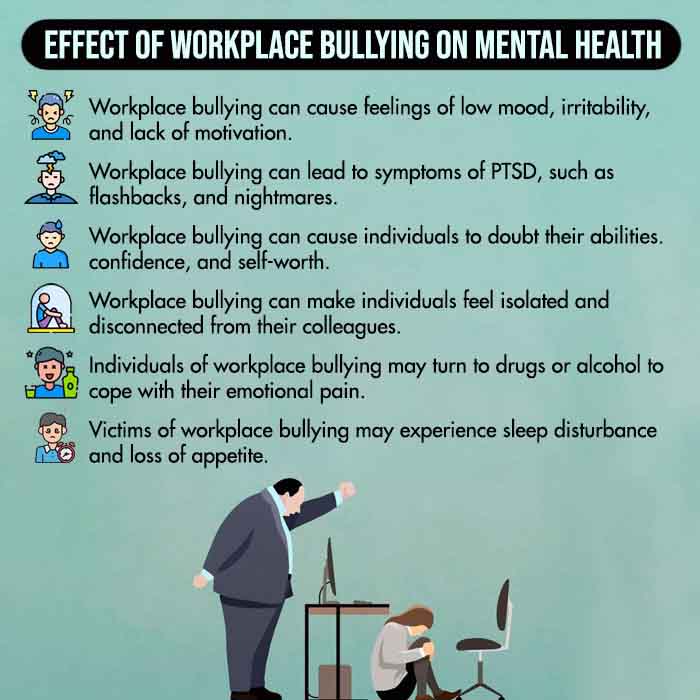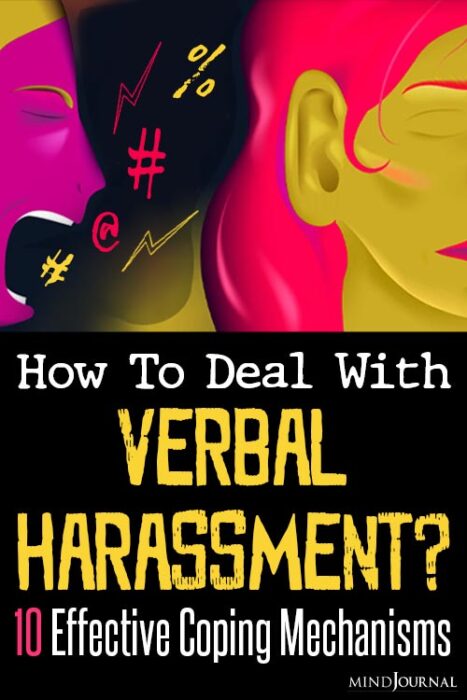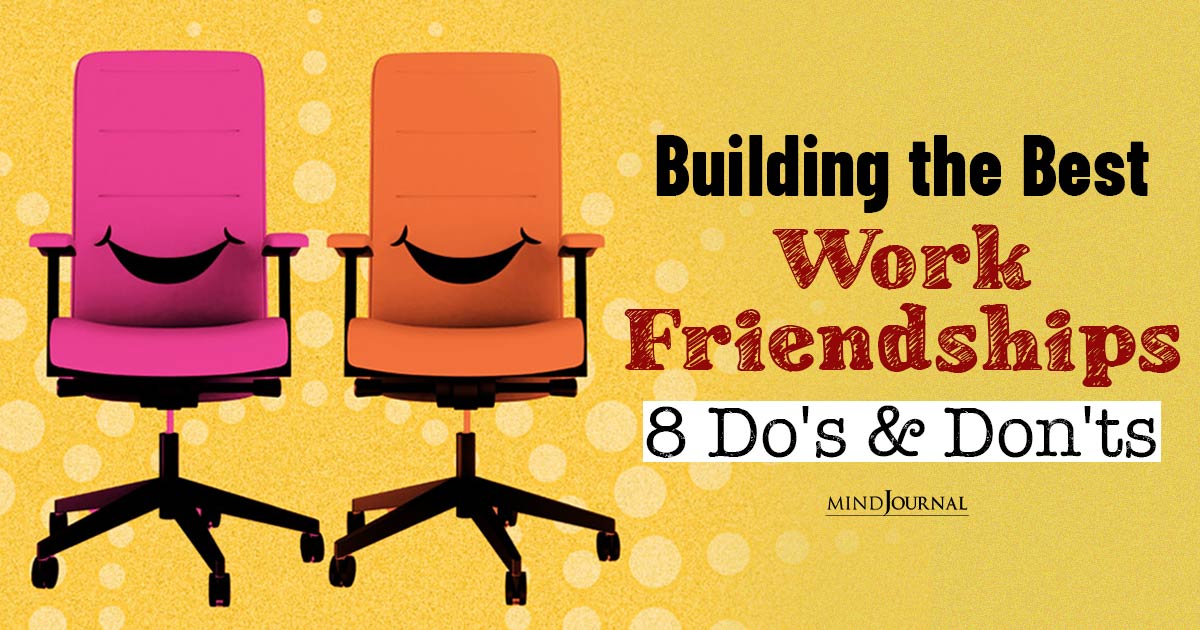Imagine you’re at work, minding your own business, when all of the sudden, you find yourself in a tough spot. Your coworker, well, let’s call him Mr. Insensitive, starts hurling hurtful comments at you like they’re going for the gold medal in a stand-up comedy gig. So, how to deal with verbal harassment?
Dealing with verbal harassment in the workplace is like being trapped in a never-ending loop of awkwardness and frustration. But don’t worry, because together we’re going to look at how to deal with verbal harassment, because ain’t nobody got time for that nonsense.
Before we get down to understanding strategies regarding how to handle verbal harassment in the workplace, let’s find out what is verbal harassment and some verbal harassment examples.
Related: 10 Tips For Dealing With Negative Colleagues
What Is Verbal Harassment?
Verbal harassment is the evil twin of communication – it happens when someone use certain words to make you feel humiliated, scared, or disrespected. Think of it as being hit with a flood of nasty remarks, cruel jokes, or mean comments that leave you feeling as out of place as a porcupine in a balloon factory.
Verbal harassment is more than just an inconvenience, it can seriously mess with your emotional and mental well-being. That’s why it’s crucial to understand what is verbal harassment or verbal harassment examples, and how to deal with it in the workplace.
Let’s talk about a few verbal harassment examples below.
15 Statements Of Verbal Harassment
Verbal harassment in the workplace can manifest in various ways. Here are a few verbal harassment examples:
- “You’re just a diversity hire, you don’t deserve your position.”
- “You should stick to what you’re good at, because it’s clearly not this job.”
- “I can’t believe they let someone like you represent our company.”
- “You’re too fat/ugly to be taken seriously.”
- “You must have slept your way to the top, because your skills certainly didn’t get you here.”
- “You’re so bloody stupid! Why did they even hire you in the first place?”
- “You’re just a pretty face, you don’t actually contribute anything meaningful.”
- “I heard you got this promotion because you’re sleeping with the boss.”
- “You’re too emotional to handle this job.”
- “Your ideas are always stupid, why do you even bother?”
- “You should just quit, because you’re never going to succeed here.”
- “You’re too old to keep up with the younger generation.”
- “You’re such a loser, that’s why nobody likes you.”
- “You’ll never be as good as him/her.”
- “You’re too sensitive, learn to take a joke.”

8 Verbal Harassment Examples
1. Spreading lies about you.
Lying about someone can not just hurt your feelings, it can also break the law if it falls under defamation, and can your ruin your reputation.
For example, talking about you behind your back by speculating how you got a raise or promotion. Spreading lies is bad enough, but when someone makes up disgusting stories about you, it can seriously damage your image.
And if a bunch of folks start thinking that these false stories are true, it can even mess with your job.
Related: Surviving The Toxic Workplace: How To Deal With A Narcissistic Coworker
2. Cracking insulting jokes at your expense.
Making jokes about you at work is one of the biggest verbal harassment examples. If you’re constantly picked on by others and bullied in the name of “pulling your leg”, then it’s not just unprofessional, it can be a traumatic experience too.
Even worse is when you try to call it out, and they shut you down by saying you’re “overreacting” or “not playing ball with the team.” It’s simply unfair when someone undermines your respect and then gaslights you into believing that there’s nothing wrong with their behavior.
3. Making sexual advances towards you.
It’s really upsetting and confusing when you have to deal with unwanted sexual attention. And not to forget, it’s scary too. Imagine a coworker, client, or even your boss coming on to you or hinting that sleeping with them might help you get ahead at work.
Constantly hearing comments about your looks can feel exhausting, stressful, cheap and can take a heavy toll on your mental health. No one should make you feel bad about your body or imply that offering sexual favors is a way to gain benefits.
4. Making inappropriate sounds whenever you are present.
This is one of the subtle verbal harassment examples.
I’m talking about “inappropriate sounds”, and not the kind that slip out by accident like a fart or burp when you’re working close to others. Sure, these can be a bit awkward for you, but sometimes you just can’t hold them in.
What I really mean are the noises someone chooses to make on purpose. We’re looking at a whole bunch of examples here, take for instance someone whistling as soon as you walk past or letting out a loud sigh when you enter the room, implying that you’re not welcome.
Certain sounds could even cross the line into sexual harassment territory. The person making the noises doesn’t have to say anything; these sounds alone can make you feel uncomfortable or threatened.
5. Gossiping about you.
What is verbal harassment? This!
This one’s pretty close to spreading lies, but it’s different because what’s being said behind your back might actually be true. And the person gossiping tends to do it over and over again.
Naturally, you’ll feel upset when you find out that you’re the subject of negative chitchat in your workplace. Even if there’s some truth to it, it can still spell trouble for you. The problem with gossip is that it can twist the truth and alter the situation.
When people continue to gossip about you, it can turn your workplace into an intimidating, harmful environment because of the constant speculation behind your back.
Related: Signs Of A Toxic Workplace: 10 Red Flags You Mustn’t Ignore
6. Hypercritical comments.
Critique isn’t always harmful, but when your boss or someone higher up overdoes it and harshly judges you, it can be considered as one of the serious verbal harassment examples.
If your boss purposely puts you in situations where you’re bound to fail, and then criticizes you for it in front of others to shame and belittle you, then it is definitely verbal harassment. Criticism should help you to work on your mistakes, improve yourself, and promote learning, but negative criticism’s sole motive is to take you down.
7. Threats are thrown your way.
An employer might threaten to unfairly discipline you (“I’ll fire you if you talk back”) or use threats of physical or sexual violence (“Don’t make me come over there and teach you a lesson”). These actions are clear verbal harassment examples, and are always wrong.
You shouldn’t be afraid at your job. It’s a workplace, not a battlefield, so feeling threatened by your boss or co-workers is not okay.
Other forms of threats could be warnings that you won’t get a promotion, threats to withhold your salary, or comments that people don’t like you.
8. Being yelled at more often than not.
It’s normal to get worked up sometimes when you are working on an important project or you are having an meeting, but if your boss or a co-worker starts yelling at you for no good reason or raises their voice at you, it counts as verbal harassment.
Their aim is to win the argument through intimidation rather than having a civil conversation, which is why they resort to yelling as a tactic.

Now that we have discussed verbal harassment examples, let’s talk about how to deal with verbal harassment.
How To Deal With Verbal Harassment In The Workplace?
- Keep your cool: Take some deep breaths, and try to stay calm when someone is trying to harass you. It might feel difficult, but hold on to your zen.
- Write down everything: How to deal with verbal harassment? Jot down every incident of harassment, noting the when, where, and exact details of each event.
- Draw strict boundaries: Whoever is harassing you, firmly but clearly tell them what they’re doing is not okay and they need to cut it out.
- Reach out for support: Talk to people you trust like your work buddies, or HR professionals who can help you and give you the right advice.
- Inform HR: If things don’t get better, take the problem to your company’s HR folks or whoever is in charge of handling things like this.
- Understand and follow company policies: How to deal with verbal harassment? Make sure you know and follow your company’s rules and policies when it comes to dealing with verbal harassment in the workplace.
- Maintain evidence: Hold onto any proof of harassment, like emails, texts, or witness statements.
- Seek legal advice: How to deal with verbal harassment? If things really get bad or nobody is willing to help you out, get in touch with a lawyer and seek some legal advice to deal with this.
- Prioritize your wellbeing: Prioritize self-care and seek counseling or therapy, if necessary, to cope with the emotional impact of harassment.
- Be aware of your legal rights: Educate yourself about local laws and regulations related to workplace harassment to better understand your rights and options.
Related: Speaking Up Against Bad Behavior: 6 Valuable Tips
Are you dealing with verbal harassment in the workplace? Do any of these examples and signs resonate with you? Do let us know your thoughts in the comments down below!









Leave a Reply
You must be logged in to post a comment.